Politics and Philosophy - A Dynamic Duo or a Contradiction?
When we think about politics and philosophy, we often picture two realms that seem worlds apart. Politics is the arena of power, governance, and the often messy business of human interaction, while philosophy invites us to ponder the abstract, the ethical, and the existential. But what if these two domains are not just intertwined but are, in fact, essential to one another? This article dives deep into the intricate relationship between these two fields, exploring how they influence each other and their historical context, while also examining the implications of their interplay in contemporary society.
At first glance, it might appear that politics, with its focus on practical governance and immediate outcomes, stands in stark contrast to philosophy, which often deals in ideals and theories. However, history tells a different story. From the ancient Greeks to modern-day thinkers, the dialogues between political leaders and philosophers have shaped the very foundations of our societies. For instance, consider how the political theories of philosophers like Plato and Aristotle have laid the groundwork for modern democratic practices and ethical governance. Their ideas continue to resonate today, proving that the essence of political thought is deeply rooted in philosophical inquiry.
Moreover, the relationship between politics and philosophy is not merely historical; it is a living dialogue that continues to evolve. In today's world, we see philosophical ideas manifesting in social movements, influencing public policy, and even guiding political leaders in their decision-making processes. For example, the principles of utilitarianism and deontological ethics are frequently invoked in debates over social justice and human rights. This interplay raises essential questions: Can philosophy provide a moral compass for political leaders? How do philosophical ideals shape our understanding of justice, freedom, and equality?
As we navigate through this exploration, we will uncover not only the historical context of political thought but also the significant contributions of key philosophers. We'll delve into the implications of their ideas in today’s political landscape, revealing how philosophy can serve as both a guide and a challenge to contemporary governance. The dynamic relationship between these two fields prompts us to reflect on our own beliefs and the systems that govern our lives. Are we merely subjects of political power, or can we engage in the philosophical discourse that shapes our collective future?
Join us as we embark on this intellectual journey, examining the profound connections between politics and philosophy, and discovering whether they are indeed a dynamic duo or a contradiction in terms.
- How do politics and philosophy influence each other? Politics often draws on philosophical ideas to justify policies, while philosophy can critique political systems and propose ethical frameworks for governance.
- What are some key philosophical theories that impact modern politics? Theories such as utilitarianism and deontological ethics play significant roles in shaping political ideologies and practices.
- Can philosophy provide solutions to political problems? While philosophy can offer frameworks for understanding and addressing political issues, practical implementation often requires collaboration with political realities.
- Why is it important to study the relationship between politics and philosophy? Understanding this relationship helps us critically engage with our political systems and encourages informed citizenship.

The Historical Context of Politics and Philosophy
Understanding the intricate relationship between politics and philosophy requires a deep dive into their historical evolution. From ancient civilizations to modern democracies, the interplay between these two domains has shaped societies in profound ways. The roots of political thought can be traced back to ancient Greece, where philosophers like Plato and Aristotle laid the groundwork for political theory as we know it today. Their ideas not only influenced the governance of their time but also resonated throughout history, impacting various political movements and ideologies.
In ancient Greece, the concept of the polis (city-state) was central to political life. It was within these city-states that the seeds of democracy were sown, driven by philosophical inquiry into justice, governance, and the role of the individual within society. The tension between idealism and pragmatism can be seen in the works of these early thinkers. For instance, while Plato envisioned a society governed by philosopher-kings who would rule with wisdom and virtue, Aristotle took a more practical approach, emphasizing the importance of ethics and civic responsibility in politics.
Fast forward to the Renaissance, and we see a resurgence of interest in classical philosophy, which sparked new political ideas. Thinkers like Machiavelli shifted the focus from idealistic governance to the realities of power, exploring the often harsh dynamics of political life. His work, "The Prince," remains a seminal text that examines the complexities of leadership and the moral ambiguities that often accompany political power.
The Enlightenment further transformed political philosophy, as thinkers such as John Locke and Jean-Jacques Rousseau introduced concepts of individual rights and the social contract. Their ideas laid the foundation for modern democracies, emphasizing the importance of freedom, equality, and justice. These principles not only influenced revolutions in America and France but also shaped contemporary political ideologies, reinforcing the notion that philosophy is not merely academic but deeply intertwined with the governance of society.
To illustrate this historical context, the following table summarizes key philosophers and their contributions to political thought:
| Philosopher | Key Ideas | Influence on Politics |
|---|---|---|
| Plato | Philosopher-kings, Ideal State | Concept of governance based on wisdom |
| Aristotle | Practical politics, Ethics | Foundation of democratic practices |
| Machiavelli | Realism in politics, Power dynamics | Understanding the nature of political power |
| Locke | Natural rights, Social contract | Influence on liberal democracy |
| Rousseau | General will, Popular sovereignty | Concept of collective decision-making |
As we can see, the evolution of political thought is a rich tapestry woven from various philosophical threads. Each philosopher contributed unique insights that continue to influence contemporary political discourse. The historical context of politics and philosophy is not just a relic of the past; it is a living dialogue that shapes our understanding of governance and the moral imperatives that guide it.
In conclusion, exploring the historical context of politics and philosophy reveals a dynamic interplay that has evolved over centuries. This relationship is crucial for understanding contemporary political structures and the ethical considerations that underpin them. As we move forward, it is essential to reflect on these historical foundations and consider how they can inform our present and future political landscapes.
- How did ancient philosophers influence modern politics? Ancient philosophers laid the groundwork for political theory, introducing concepts of justice, governance, and ethics that continue to resonate today.
- What role did the Enlightenment play in shaping political thought? The Enlightenment emphasized individual rights and social contracts, significantly influencing modern democratic ideologies.
- Why is it important to study the history of political philosophy? Understanding the historical context helps us appreciate the evolution of political ideas and their relevance in contemporary society.
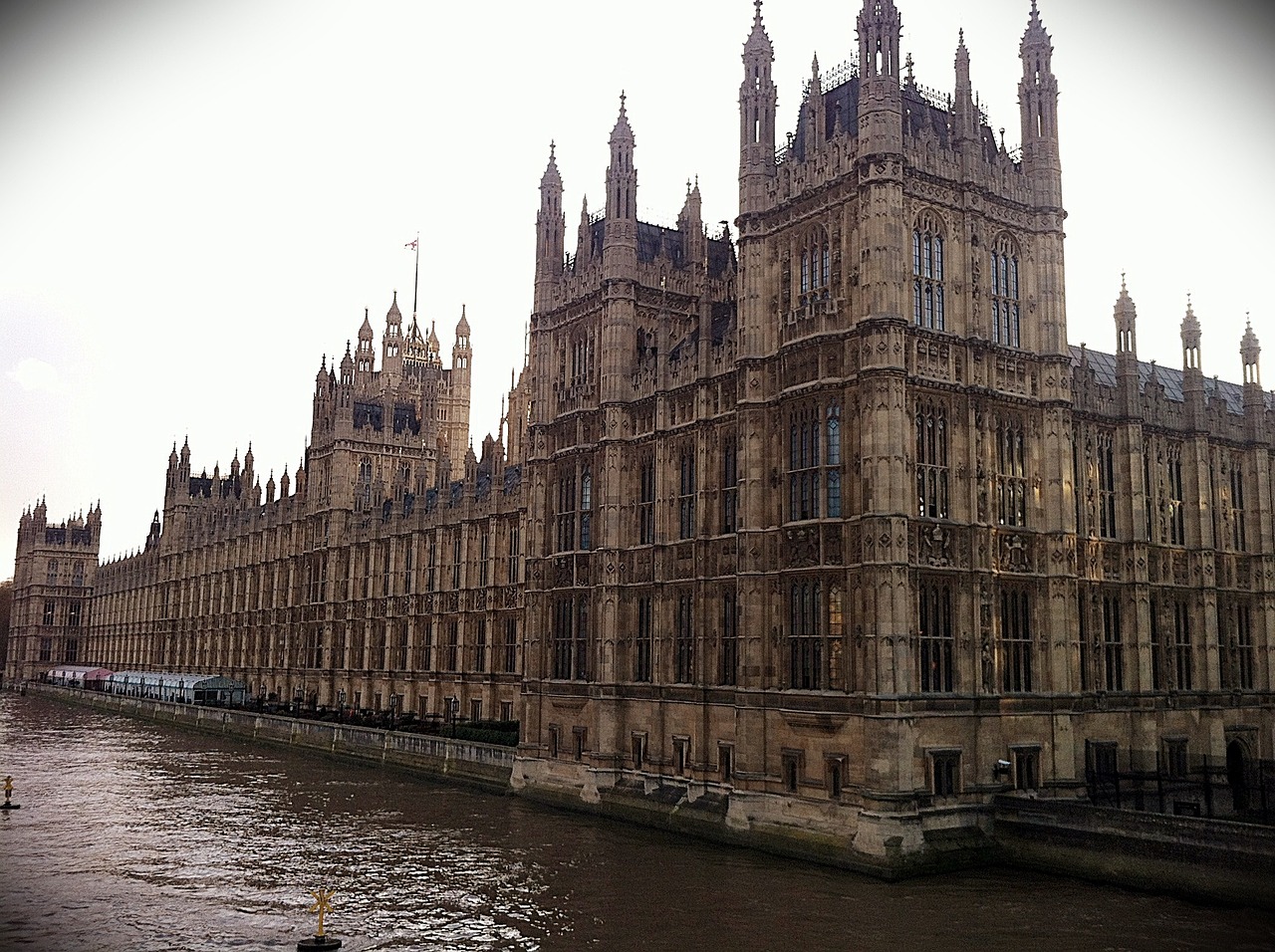
Key Philosophers and Their Political Theories
The relationship between politics and philosophy has been shaped by some of the most influential thinkers throughout history. These philosophers not only pondered the nature of existence but also sought to understand the intricacies of governance and societal structures. Their theories have paved the way for modern political thought and continue to resonate in contemporary discussions. Let’s delve into the ideas of a few key philosophers who have left an indelible mark on political theory.
Plato, often regarded as the father of Western philosophy, introduced the concept of the ideal state in his work, "The Republic." He envisioned a society governed by philosopher-kings—wise rulers who possess both knowledge and virtue. Plato believed that only those who understand the true nature of justice and goodness should lead. This notion challenges the often chaotic and self-serving nature of contemporary politics, prompting us to ask: should wisdom be a prerequisite for leadership? Plato’s ideas raise significant questions about the qualifications of those in power and the moral responsibilities of leaders.
In Plato's ideal state, society is structured into three distinct classes: the rulers (philosopher-kings), the guardians (soldiers), and the producers (farmers and artisans). Each class has its own role and responsibilities, contributing to the harmony of the state. This hierarchical structure emphasizes the importance of knowledge and wisdom in governance. However, the practicality of such a system has been debated extensively. Critics argue that it is unrealistic to expect rulers to be both wise and benevolent, especially in a world driven by ambition and power.
The concept of philosopher-kings raises intriguing questions about the nature of leadership today. In a world filled with political turmoil and ethical dilemmas, can we find leaders who embody philosophical wisdom? Are our current leaders equipped to make decisions that reflect the greater good? The idea of philosopher-kings challenges us to reconsider the qualities we value in our leaders. Should we advocate for a system that prioritizes philosophical insight over mere popularity or political savvy?
Despite its allure, Plato's theory has faced substantial critiques. Detractors argue that his idealism is impractical in a world where human nature often leans towards selfishness and corruption. The belief that a small group of enlightened individuals can govern effectively is often seen as naive. Critics point out that history is replete with examples where power has corrupted even the most well-intentioned leaders. Therefore, while Plato's vision is inspiring, it begs the question: can we realistically implement such ideals in our political systems?
Aristotle, a student of Plato, took a different approach. His political theory emphasized the importance of practicality and ethics. In "Politics," Aristotle argued that the best government is one that serves the common good and promotes virtue among its citizens. He believed that a well-structured political system should encourage civic engagement and responsibility, reflecting a more democratic ethos compared to Plato's hierarchical model.
Aristotle's philosophy is grounded in the belief that politics is a natural extension of human relationships. He posited that humans are inherently social beings, and as such, they must work together to achieve a just society. His ideas about ethics and virtue are particularly relevant today as we navigate complex political landscapes. Aristotle's insistence on the importance of civic responsibility serves as a reminder that active participation in governance is crucial for a thriving democracy.
In summary, the ideas of Plato and Aristotle serve as foundational pillars in the realm of political philosophy. Their contrasting views on governance—idealism versus practicality—continue to influence contemporary political thought. Understanding their theories allows us to critically evaluate our current political systems and consider how we might strive for a more just and equitable society.
- What is the main difference between Plato and Aristotle's political theories?
Plato emphasizes an ideal state governed by philosopher-kings, while Aristotle focuses on practical governance that promotes civic responsibility and the common good.
- How do Plato's ideas challenge modern political norms?
Plato's vision of philosopher-kings raises questions about the qualifications of leaders and the importance of wisdom in governance, contrasting with the often chaotic nature of contemporary politics.
- Why is ethics important in political philosophy?
Ethics shape political ideologies and influence policy-making, guiding leaders in making decisions that affect society as a whole.
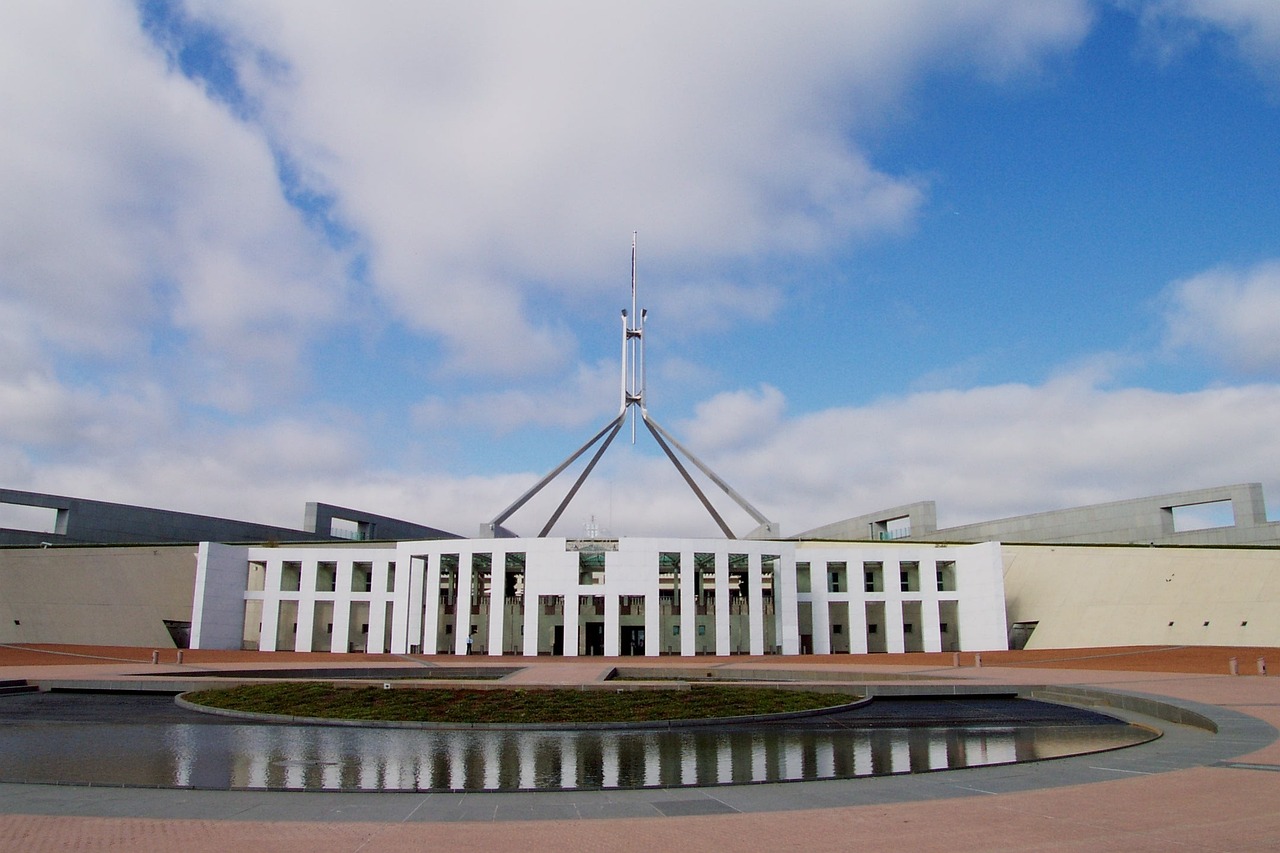
Plato's Ideal State
Plato's vision of an ideal state is not just a mere philosophical musing; it is a profound exploration of governance that challenges our perceptions of political leadership. In his seminal work, The Republic, Plato introduces the concept of the philosopher-king, a ruler who possesses both wisdom and virtue. This ideal leader is not driven by personal ambition or the whims of the masses, but rather by a deep understanding of justice and the common good. Imagine a society where leaders are not merely politicians but enlightened thinkers who prioritize the welfare of their citizens above all else. How different would our political landscape look today?
At the core of Plato's theory is the belief that only those who truly understand the essence of justice can govern effectively. He argues that most people are too distracted by their own desires and the chaos of everyday life to grasp the deeper truths of existence. This leads to a crucial question: if we accept Plato's premise, how do we ensure that our leaders are equipped with the philosophical wisdom necessary for effective governance? Plato suggests a rigorous education system that cultivates the minds of potential leaders, focusing on mathematics, dialectics, and the study of the good. This approach is not only about imparting knowledge but also about shaping character.
However, the idea of philosopher-kings raises significant questions in a modern context. Can we realistically expect our leaders to possess such high moral and intellectual standards? The concept challenges the status quo, suggesting that democracy, as we know it, may not be the most effective form of governance if the electorate lacks the wisdom to choose their leaders wisely. This leads us to ponder: are we, as citizens, prepared to engage with the philosophical underpinnings of our political choices? Or are we content with superficial engagements that prioritize popularity over substance?
Critics of Plato's ideal state argue that his vision is impractical, asserting that it overlooks the complexities of human nature and the realities of political power. They contend that the concentration of power in the hands of a few philosopher-kings could lead to tyranny, as these rulers might become detached from the very people they are meant to serve. Moreover, the assumption that a select group of individuals can attain a superior understanding of justice is contentious. In a world where diverse perspectives are crucial for a balanced society, is it wise to entrust governance to a single class of intellectuals?
Despite these critiques, the allure of Plato's ideal state persists. It serves as a reminder of the importance of philosophy in politics and the potential for enlightened leadership. In a time when political discourse often feels shallow and self-serving, revisiting Plato's ideas can inspire a more thoughtful approach to governance. As we navigate the complexities of modern politics, perhaps the most significant takeaway from Plato's vision is the call for a more informed and engaged citizenry, one that demands wisdom and virtue from its leaders.
- What is the main idea behind Plato's ideal state? Plato's ideal state emphasizes the need for philosopher-kings who possess wisdom and virtue to govern justly.
- How does Plato suggest we choose our leaders? Plato advocates for a rigorous education system that prepares potential leaders to understand justice and the common good.
- What are some criticisms of Plato's theory? Critics argue that his idealism is impractical and could lead to tyranny, as it concentrates power in the hands of a few.
- Why is Plato's vision still relevant today? Plato's ideas encourage us to reflect on the qualities we value in our leaders and the importance of philosophical engagement in politics.

Philosopher-Kings in Modern Governance
The concept of philosopher-kings, as introduced by Plato, raises intriguing questions about the nature of leadership in contemporary governance. In an era where political decisions can significantly impact millions, the idea of leaders who possess both wisdom and virtue seems more relevant than ever. Imagine a world where political leaders are not only skilled in the art of governance but also deeply knowledgeable in ethics, philosophy, and the complexities of human nature. Wouldn't that be a refreshing change from the often chaotic and self-serving nature of politics today?
In modern governance, the philosopher-king concept challenges us to rethink what qualities we value in our leaders. Are we looking for charismatic figures who can rally the masses, or do we seek those who can engage in deep philosophical reflection and make decisions based on reason and justice? The philosopher-king is not just a theoretical ideal; it raises practical implications for how we select and evaluate our leaders. For instance, should we prioritize candidates with a strong educational background in philosophy or ethics?
Moreover, the role of philosophical wisdom in political decision-making can be observed in various political systems around the world. In some countries, leaders who embrace philosophical principles tend to foster a more inclusive and deliberative approach to governance. They prioritize public discourse and consider the long-term consequences of their policies, rather than merely catering to short-term electoral gains. This leads to a more informed populace and a healthier democratic process.
However, the philosopher-king model is not without its criticisms. Critics argue that the concept is utopian and impractical in today's political landscape, where power dynamics and populism often overshadow rational discourse. They pose the question: can any individual truly embody the wisdom and virtue required to lead effectively? This skepticism is healthy; it prompts us to critically assess the balance between idealism and pragmatism in our political systems.
Ultimately, the idea of philosopher-kings in modern governance serves as a thought-provoking lens through which we can evaluate our political leaders. It encourages us to demand more from those in power, urging them to aspire toward a higher standard of leadership that values ethical considerations and intellectual rigor. In this light, the philosopher-king is not just a relic of ancient thought but a beacon guiding us toward a more enlightened form of governance.
- What is a philosopher-king?
A philosopher-king is a concept introduced by Plato, referring to a ruler who possesses both philosophical wisdom and political power. - Can the idea of philosopher-kings be applied today?
Yes, many argue that incorporating philosophical principles in leadership can lead to more ethical and effective governance. - What are the criticisms of the philosopher-king concept?
Critics argue that the idea is impractical and that no single individual can embody the wisdom and virtue necessary for effective leadership.

Critiques of Plato's Theory
Despite the profound impact of Plato's idealism on the realm of political thought, many critics argue that his vision of an ideal state is not only impractical but also fundamentally flawed. One of the primary critiques revolves around the concept of the philosopher-king. Critics contend that entrusting governance to a select group of philosophers assumes that they possess the requisite wisdom and virtue to lead effectively. However, history has shown us that power can corrupt even the most well-intentioned individuals. This raises the question: can we truly expect a philosopher to remain untainted by the allure of power?
Furthermore, Plato's ideal state is predicated on a rigid class structure, where individuals are assigned roles based on their abilities and societal needs. Critics argue that this approach undermines personal freedom and autonomy, reducing individuals to mere cogs in a larger machine. In a world that increasingly values individual rights and freedoms, Plato's vision seems antiquated. The notion that a society can function optimally by enforcing a predetermined hierarchy is contentious, especially when one considers the diverse and dynamic nature of human beings.
Another significant critique is the lack of practical applicability of Plato's theories. The ideal state he describes is more of a utopian dream than a feasible political model. For instance, in Plato's Republic, he suggests that the ideal society would be governed by reason and rationality, yet human emotions and irrationality play a substantial role in political behavior. This disconnection from the realities of human nature leads many to dismiss his theories as overly idealistic.
Moreover, the exclusion of the masses from political decision-making in Plato's model raises ethical concerns about democracy and representation. Plato's disdain for democracy, illustrated by his belief that the general populace is incapable of making sound decisions, poses a challenge to modern democratic ideals that emphasize the importance of participation and inclusivity. Critics argue that his perspective fosters elitism, suggesting that only a select few are worthy of governance, while the voices of the majority are silenced.
In summary, while Plato's contributions to political theory have undeniably shaped philosophical discourse, the critiques of his idealism highlight significant limitations. The tension between his utopian vision and the complexities of human nature and society continues to fuel debates in contemporary political philosophy. As we navigate the intricacies of modern governance, it is essential to consider these critiques to foster a political landscape that is both pragmatic and just.
- What is Plato's concept of the philosopher-king?
Plato's philosopher-king is a ruler who possesses both love for wisdom and the ability to govern justly, ideally leading society towards the common good.
- Why do critics argue against Plato's ideal state?
Critics argue that it is impractical, overly rigid, and dismissive of individual freedoms, and that it does not account for the complexities of human nature.
- How does Plato's theory relate to modern democracy?
Plato's skepticism towards democracy contrasts sharply with modern democratic ideals that prioritize inclusivity and public participation in governance.
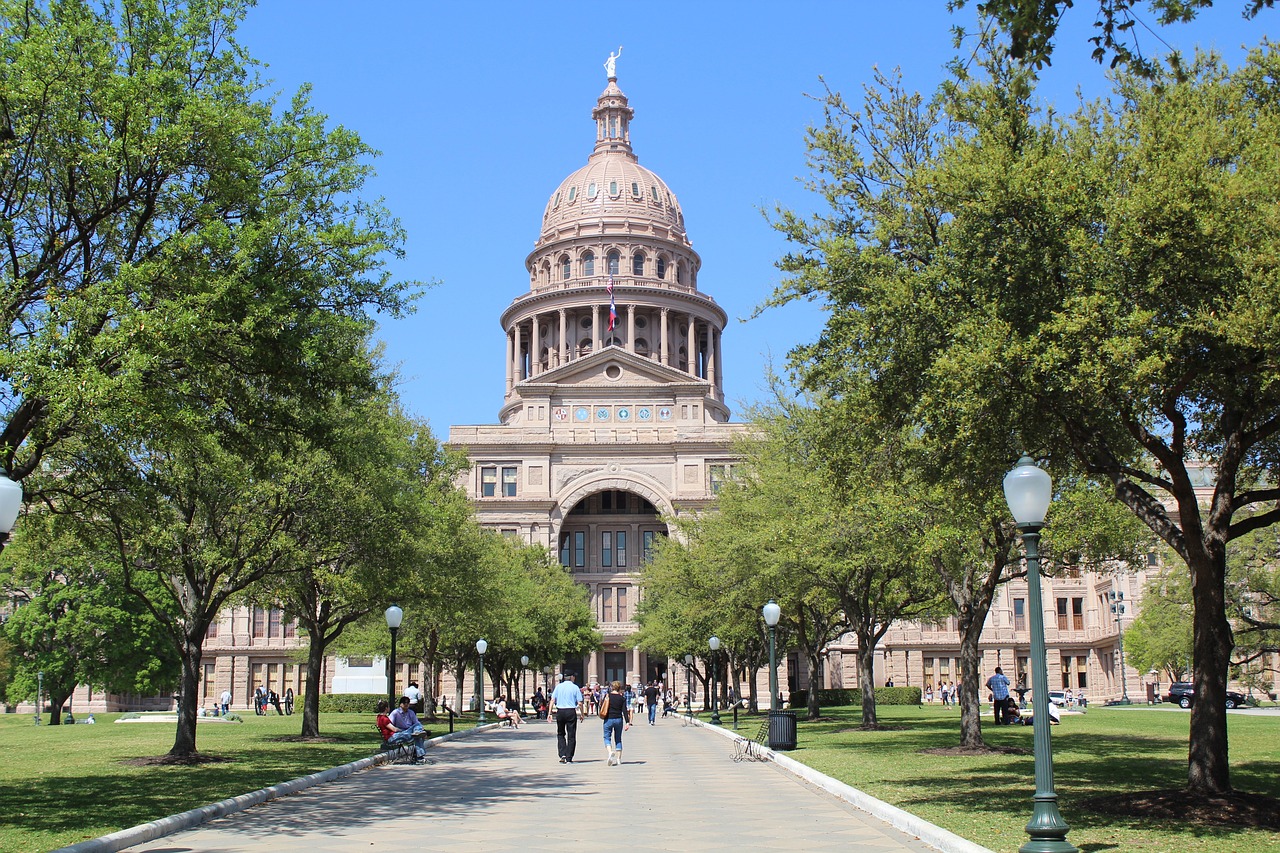
Aristotle's Practical Politics
When we dive into the world of , we're not just skimming the surface of ancient philosophy; we're plunging into a treasure trove of ideas that still resonate today. Aristotle, often hailed as the father of political science, had a knack for blending ethics with governance, creating a framework that emphasizes the importance of virtue and moral responsibility in political life. Unlike his mentor Plato, who envisioned an ideal state ruled by philosopher-kings, Aristotle grounded his theories in the realities of human behavior and societal structures. He believed that the best political system is one that fosters the common good while allowing citizens to exercise their virtue.
Aristotle's approach is refreshingly practical. He introduced the concept of the polis, or city-state, as the ideal environment for political engagement. For him, politics was not merely a means to an end but a way for individuals to achieve their fullest potential. He argued that citizens should actively participate in governance, as this involvement is essential for both personal development and the health of the community. In fact, Aristotle posited that the purpose of the state is to promote virtue and enable citizens to lead fulfilling lives.
But what does this mean for us today? Aristotle's insights are incredibly relevant in our modern democratic practices. His emphasis on civic responsibility encourages us to be active participants in our political systems, whether through voting, advocacy, or community service. He believed that a well-functioning democracy relies on informed and engaged citizens who understand their rights and responsibilities. This is where his teachings intersect with contemporary issues, such as civic engagement and social justice. When citizens are equipped with the knowledge and virtue to make informed decisions, they contribute to a more just and equitable society.
To further illustrate Aristotle's influence, let's consider a comparison of his political philosophy with modern democratic principles:
| Aristotle's Principles | Modern Democratic Principles |
|---|---|
| Focus on virtue and ethics | Emphasis on rights and freedoms |
| Active citizen participation | Voting and civic engagement |
| Promotion of the common good | Social justice initiatives |
| Importance of education and knowledge | Informed electorate |
In this light, Aristotle's practical politics serves as a reminder that our political systems are not just structures of power but are deeply intertwined with our ethical principles and personal virtues. As we navigate the complexities of modern governance, Aristotle's call for ethical leadership and active citizenship is more crucial than ever. It challenges us to reflect on our roles within our communities and to strive for a political landscape that champions the greater good.
- What is Aristotle's view on democracy? Aristotle believed that democracy could be a positive force if it promotes virtue and the common good. However, he also warned against the potential for mob rule.
- How does Aristotle's philosophy apply to modern politics? His emphasis on civic engagement and ethical leadership remains relevant today, encouraging citizens to participate actively in governance.
- What are the key differences between Aristotle and Plato? While Plato focused on ideal forms and the role of philosopher-kings, Aristotle grounded his theories in practical realities and the importance of virtue in politics.

The Role of Ethics in Political Philosophy
When we dive into the world of political philosophy, we quickly realize that ethics is not just an accessory; it's the backbone that supports the entire structure. Imagine trying to build a house without a solid foundation—it's bound to crumble. In the same way, political ideologies and systems require ethical principles to ensure they are just and equitable. Ethics helps us navigate the murky waters of political decision-making, guiding leaders in their choices and actions. But how do these moral principles actually shape political ideologies? Let's explore this intricate relationship.
At its core, political philosophy grapples with questions of justice, rights, and the common good. These concepts are not merely theoretical; they have real-world implications that affect every citizen. For example, when governments create laws, they often refer to ethical frameworks to justify their decisions. This is where the interplay between ethics and politics becomes particularly fascinating. The decisions made by political leaders can either uphold ethical standards or challenge them, leading to significant societal consequences.
One of the most prominent ethical theories that influence political philosophy is utilitarianism. This principle suggests that the best action is the one that maximizes overall happiness or utility. In political terms, this translates to policies aimed at achieving the greatest good for the greatest number of people. While this might sound straightforward, the application of utilitarianism can lead to complex dilemmas. For instance, should a government prioritize the majority's happiness at the expense of a minority's rights? This ethical conundrum highlights the delicate balance that political leaders must strike when crafting laws and policies.
On the flip side, we have deontological ethics, which focuses on rules and duties rather than the consequences of actions. This approach emphasizes that certain actions are inherently right or wrong, regardless of their outcomes. In the realm of governance, deontological principles can guide leaders to uphold justice and integrity, even when it may not lead to the most beneficial results for the majority. For instance, a government might refuse to implement a policy that harms a small group of people, even if it benefits a larger population. This steadfast adherence to duty can foster trust and respect from the public, reinforcing the ethical foundation of political systems.
To illustrate the impact of ethics on political philosophy, let's take a look at a simple table that compares the two ethical frameworks:
| Ethical Framework | Focus | Political Implications |
|---|---|---|
| Utilitarianism | Greatest good for the greatest number | Policies may prioritize majority happiness, potentially sidelining minority rights |
| Deontological Ethics | Inherent rightness or wrongness of actions | Policies uphold justice and integrity, regardless of the outcomes |
As we navigate through current political landscapes, the role of ethics becomes even more pronounced. With rising social movements and calls for justice, ethical considerations are at the forefront of political discourse. Activists often invoke ethical arguments to challenge existing systems, pushing for reforms that reflect moral principles rather than mere political expediency. This dynamic interplay between ethics and politics not only shapes public policies but also influences societal values.
In conclusion, the role of ethics in political philosophy is both profound and complex. It serves as a guiding light for political leaders, influencing their decisions and shaping the ideologies that govern society. As we continue to face ethical dilemmas in the political sphere, understanding this relationship becomes increasingly vital. After all, a society that neglects the ethical dimensions of politics risks losing its moral compass, leading to governance that is not just ineffective, but unjust.
- What is the importance of ethics in political philosophy? Ethics provides the foundational principles that guide political decision-making, ensuring justice and equity in governance.
- How does utilitarianism influence political policies? Utilitarianism promotes policies aimed at maximizing overall happiness, but it can also lead to ethical dilemmas regarding minority rights.
- What is deontological ethics? Deontological ethics focuses on the morality of actions themselves, emphasizing duty and rules over the consequences.
- Why are ethical considerations relevant in contemporary politics? Ethical considerations are crucial in shaping public discourse and guiding social movements, making them central to current political debates.

Utilitarianism and Its Political Implications
Utilitarianism, a philosophical theory primarily associated with Jeremy Bentham and John Stuart Mill, posits that the best action is the one that maximizes overall happiness or utility. This approach to ethics has profound implications for political decision-making, as it encourages leaders to prioritize policies that benefit the majority. In essence, utilitarianism offers a framework for evaluating the morality of political actions based on their outcomes, making it a powerful tool in shaping public policy.
At its core, utilitarianism challenges us to consider the broader impact of our choices. For instance, when a government proposes a new law, utilitarian principles would urge policymakers to ask: "Will this law create more happiness than suffering?" This question is not just theoretical; it has real-world consequences. Consider the following political implications:
- Policy Evaluation: Utilitarianism provides a clear criterion for assessing the effectiveness of policies. If a policy fails to increase overall happiness, it may need reevaluation or repeal.
- Resource Allocation: Governments often face tough choices about where to allocate limited resources. A utilitarian approach would advocate for funding programs that yield the greatest benefit for the largest number of people.
- Social Justice: Utilitarianism can inform debates on social justice by emphasizing the need to address inequalities that detract from overall happiness. This perspective can fuel movements aimed at improving the conditions of marginalized groups.
However, while utilitarianism offers a compelling lens for political analysis, it is not without its criticisms. One major concern is that it can lead to the justification of actions that may be deemed unethical if viewed through other ethical frameworks. For example, a government might justify infringing on the rights of a minority if it believes that doing so would result in a greater overall benefit for the majority. This raises important questions about the balance between individual rights and the collective good.
Furthermore, the application of utilitarian principles can be complicated by the difficulty of measuring happiness and predicting outcomes. What constitutes happiness for one group may not align with the interests of another, leading to potential conflicts and ethical dilemmas. As such, while utilitarianism can guide political thought, it must be applied with caution and in conjunction with other ethical considerations.
In conclusion, utilitarianism remains a significant force in political philosophy, providing a framework for evaluating the consequences of political actions. Its emphasis on the greatest good for the greatest number challenges leaders to think critically about their decisions and their impacts on society. However, the complexities and potential pitfalls of utilitarian thinking highlight the need for a balanced approach that considers both collective welfare and individual rights.
1. What is utilitarianism?
Utilitarianism is a philosophical theory that suggests the best action is one that maximizes overall happiness or utility.
2. Who are the main philosophers associated with utilitarianism?
The main philosophers associated with utilitarianism are Jeremy Bentham and John Stuart Mill.
3. How does utilitarianism impact political decision-making?
Utilitarianism impacts political decision-making by encouraging leaders to prioritize policies that benefit the majority, evaluating actions based on their outcomes.
4. What are some criticisms of utilitarianism?
Critics argue that utilitarianism can justify unethical actions if they lead to greater overall happiness and that it can be challenging to measure happiness accurately.
5. Can utilitarianism coexist with other ethical frameworks?
Yes, while utilitarianism offers valuable insights, it is important to consider other ethical frameworks to ensure a balanced approach to political decision-making.

Deontological Ethics in Governance
Deontological ethics, rooted in the philosophy of Immanuel Kant, emphasizes the importance of duty and adherence to moral rules. This ethical framework posits that certain actions are inherently right or wrong, regardless of their consequences. In governance, this perspective is crucial as it guides leaders to make decisions based on principles rather than outcomes. For instance, a deontological approach would advocate for upholding human rights and justice even if doing so might lead to unfavorable results in the short term. This unwavering commitment to ethical standards can help build a more just society, where laws and policies reflect moral imperatives rather than mere pragmatism.
One of the key features of deontological ethics in governance is the concept of **moral duty**. Political leaders are expected to act according to their responsibilities, which often means prioritizing the welfare of their constituents over personal or political gain. This principle can be seen in various governance structures, where officials are held accountable for their actions and decisions. By adhering to a deontological framework, leaders can foster trust and integrity within their administrations, promoting a culture of ethical behavior.
However, the application of deontological ethics in governance is not without its challenges. Critics argue that rigid adherence to rules can lead to inflexibility, potentially ignoring the complexities of real-world situations. For example, a politician might refuse to compromise on a particular policy due to a strict moral code, even if a compromise could lead to a greater overall benefit for society. This tension between duty and practicality raises important questions about the role of ethics in political decision-making.
To illustrate the impact of deontological ethics in governance, consider the following table that compares deontological principles with consequentialist approaches:
| Aspect | Deontological Ethics | Consequentialism |
|---|---|---|
| Focus | Moral duties and rules | Outcomes and consequences |
| Decision-Making | Based on principles | Based on results |
| Accountability | High moral accountability | Variable, based on outcomes |
| Flexibility | Less flexible | More adaptable to situations |
In conclusion, deontological ethics plays a significant role in shaping governance by emphasizing moral duties and principles. While it can foster integrity and accountability, it also presents challenges that require careful consideration. As political leaders navigate the complexities of governance, balancing deontological commitments with the realities of effective decision-making remains a critical task. Ultimately, the interplay between ethics and governance will continue to evolve, influencing how societies define justice and moral responsibility in the political arena.
- What is deontological ethics? Deontological ethics is a moral philosophy that focuses on the inherent rightness or wrongness of actions, emphasizing duties and rules over the consequences of those actions.
- How does deontological ethics apply to governance? In governance, deontological ethics guides leaders to make decisions based on moral principles, promoting accountability and integrity in political decision-making.
- What are the challenges of applying deontological ethics in politics? The main challenges include potential inflexibility and the risk of ignoring complex real-world situations in favor of strict adherence to moral rules.
- Can deontological ethics coexist with consequentialist approaches? Yes, many political leaders find a balance between deontological principles and consequentialist outcomes to create effective and ethical governance.

The Interplay Between Politics and Philosophy Today
In our fast-paced world, the relationship between politics and philosophy is not just a relic of the past; it is a vibrant and dynamic interplay that shapes our everyday lives. As we navigate through complex political landscapes, the philosophical underpinnings of our beliefs and actions become increasingly significant. Have you ever wondered how philosophical ideas influence modern political movements? Or how the ethical dilemmas we face today are rooted in philosophical discourse? These questions open up a fascinating dialogue about the relevance of philosophy in contemporary politics.
Take, for instance, the recent surge in social movements advocating for climate change action, racial equality, and economic justice. These movements are often fueled by philosophical ideologies that challenge the status quo. Activists draw on principles from various philosophical traditions to articulate their demands and inspire collective action. For example, the concept of justice as articulated by philosophers like John Rawls has become a rallying cry for those fighting against systemic inequality. In this way, philosophy does not merely exist in academic texts; it lives and breathes in the streets, shaping public discourse and mobilizing communities.
Moreover, the current political climate is rife with ethical dilemmas that require careful philosophical examination. Issues such as data privacy, surveillance, and the role of technology in governance provoke questions about morality and responsibility. Politicians and policymakers must grapple with these challenges, often turning to ethical theories for guidance. For instance, utilitarianism, which advocates for actions that promote the greatest good for the greatest number, plays a crucial role in shaping policies related to public health and welfare. However, this approach is not without its critics, who argue that it can overlook the rights of minorities in pursuit of a perceived greater good.
As we delve deeper into the interplay between politics and philosophy, it becomes clear that this relationship is not merely theoretical; it has real-world implications. The philosophical debates surrounding democracy, freedom, and justice are reflected in contemporary political debates and policies. For example, the ongoing discussions about voting rights and electoral reforms are deeply rooted in philosophical questions about representation and fairness. How do we ensure that every voice is heard? What does it mean to have a fair electoral process? These questions are not just political; they are fundamentally philosophical.
Looking ahead, the future of politics and philosophy appears to be intertwined. As we face global challenges such as climate change, inequality, and authoritarianism, the need for philosophical engagement in political discourse becomes increasingly urgent. The revival of philosophical thought in public life could foster a more reflective and ethical approach to governance. Perhaps we will see a new generation of leaders who embrace the wisdom of philosophers and apply it to the complex realities of modern governance.
In conclusion, the interplay between politics and philosophy is a rich and evolving tapestry that influences our society in profound ways. As we continue to navigate the complexities of our world, let us not forget the importance of philosophical inquiry in shaping our political landscape. By engaging with philosophical ideas, we can better understand the ethical implications of our political choices and strive for a more just and equitable society.
- How does philosophy influence political movements? Philosophy provides the ethical framework and principles that guide activists and shape their demands.
- What role does ethics play in contemporary politics? Ethics informs policy decisions, helping leaders navigate complex moral dilemmas and prioritize the common good.
- Can philosophy help solve modern political issues? Yes, philosophical inquiry encourages critical thinking and reflection, leading to more thoughtful and effective governance.
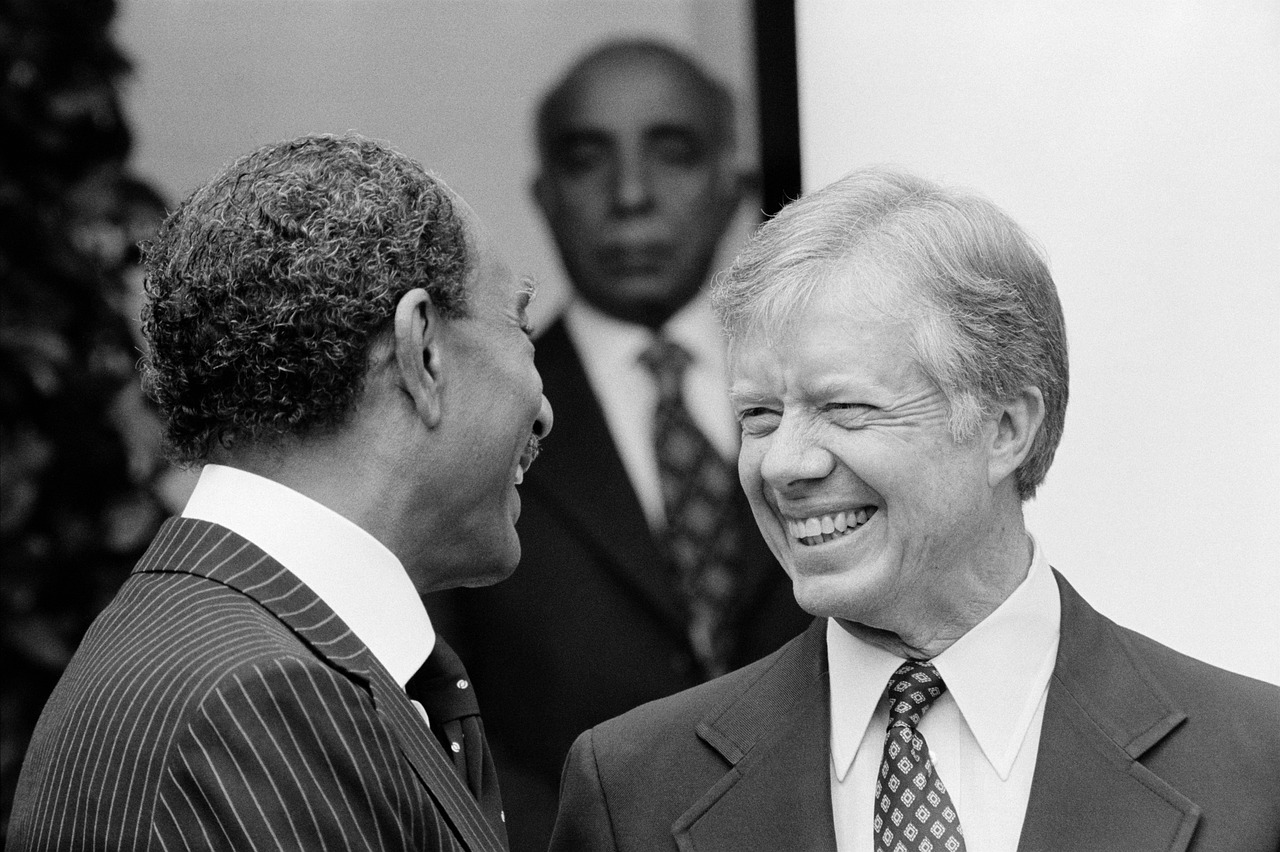
Philosophy in Political Movements
Philosophy has long served as the backbone of political movements, providing the intellectual fuel that ignites change and inspires action. From the civil rights movement to contemporary climate activism, philosophical ideas often underpin the motivations and goals of these movements. Think about it: what drives people to gather in protest, to march for justice, or to demand systemic change? Often, it's the philosophical belief that a better world is possible, and that they have the power to create it.
For instance, the principles of liberty and equality articulated by Enlightenment thinkers like John Locke and Jean-Jacques Rousseau have been foundational in various movements advocating for human rights. These ideas challenge the status quo and push individuals to envision a society where everyone is treated with dignity and respect. The civil rights movement in the United States drew heavily from these philosophical foundations, as leaders like Martin Luther King Jr. invoked ideals of justice and moral responsibility, echoing the teachings of both religious and philosophical traditions.
Moreover, the feminist movement has also relied on philosophical frameworks to articulate its goals. Thinkers like Simone de Beauvoir and Judith Butler have challenged traditional notions of gender and identity, advocating for a re-examination of societal norms. Their philosophical insights have not only informed feminist theory but have also galvanized activism, leading to profound changes in laws and societal attitudes regarding gender equality.
Similarly, the environmental movement has been shaped by philosophical discussions around our ethical responsibilities to the planet. The concept of intergenerational justice, which argues that we owe it to future generations to protect the environment, is rooted in deep philosophical inquiry. Activists today often cite the works of philosophers like Arne Naess, who introduced the idea of deep ecology, advocating for a profound respect for nature that transcends mere human utility.
In examining these movements, it's clear that philosophy does not merely exist in the abstract; it is a living, breathing entity that influences real-world actions. The interplay between philosophical thought and political activism creates a dynamic where ideas can inspire collective action. For example, the recent global protests for climate action have been fueled by a philosophical understanding of our interconnectedness and the urgent need to address climate change not just as a political issue, but as a moral imperative.
In summary, the relationship between philosophy and political movements is not just significant; it's essential. Philosophy provides the framework through which activists can articulate their grievances, propose solutions, and inspire others to join their cause. As we continue to navigate complex social challenges, the philosophical underpinnings of political movements will remain a critical area of exploration, shaping the future of activism and governance alike.
- How does philosophy influence political movements?
Philosophy provides the foundational ideas and ethical frameworks that inspire activists and shape the goals of political movements. - Can you give examples of philosophical influences in modern movements?
Yes! The civil rights movement drew from Enlightenment ideas of liberty and equality, while the feminist movement is influenced by thinkers like Simone de Beauvoir. - What role do ethical considerations play in political activism?
Ethical considerations guide activists in determining what is just and fair, influencing their strategies and the issues they prioritize. - How can philosophy help in understanding current political issues?
Philosophy encourages critical thinking and helps individuals analyze the underlying principles of political ideologies and policies, leading to more informed activism.
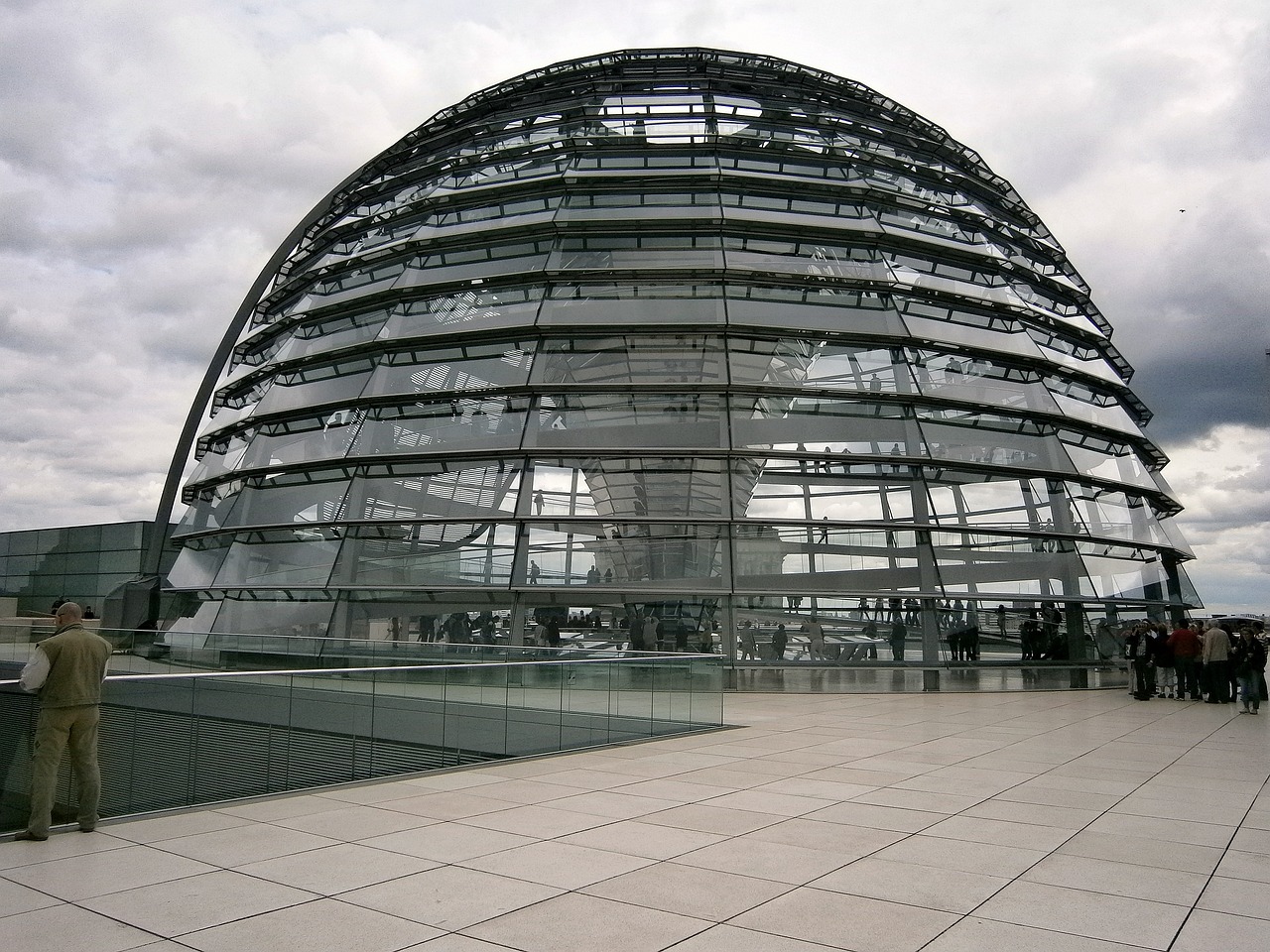
The Future of Politics and Philosophy
As we look ahead, the relationship between politics and philosophy is poised for transformation, driven by the rapid changes in our global landscape. With the rise of technology, social media, and increased awareness of global issues, the ways in which these two domains interact are evolving. Imagine a world where political decisions are not only influenced by public opinion but also by ethical considerations rooted in philosophical discourse. This is not just a dream; it is becoming a reality.
One of the most significant trends shaping the future is the increasing role of philosophical engagement in political movements. Activists are turning to philosophical frameworks to articulate their demands and inspire action. For instance, the principles of justice and equality derived from philosophers like John Rawls are being invoked in discussions about social justice and economic reform. As movements for climate justice, racial equality, and human rights gain momentum, the philosophical underpinnings of these causes become crucial in shaping public discourse.
Moreover, the digital age has ushered in a new form of political engagement. Online platforms allow for the rapid dissemination of philosophical ideas, making them accessible to a broader audience. This democratization of thought can lead to a more informed electorate, capable of engaging with complex political issues on a deeper level. However, this also raises questions about the quality of discourse. Will the noise of misinformation drown out thoughtful philosophical debate? It’s a challenge that we must confront as we navigate the future.
Looking ahead, we can anticipate a few key developments in the interplay between politics and philosophy:
- Increased Interdisciplinary Collaboration: Expect to see more collaborations between political scientists, philosophers, and ethicists. This fusion of disciplines can help create policies that are not only effective but also just.
- Philosophy as a Tool for Political Literacy: Educational initiatives may incorporate philosophical teachings to enhance critical thinking and ethical reasoning among citizens, empowering them to engage more meaningfully in political processes.
- Global Philosophical Dialogues: As globalization continues, there will likely be a rise in cross-cultural philosophical dialogues that inform political ideologies, fostering a more inclusive approach to governance.
In conclusion, the future of politics and philosophy is intertwined in ways that promise to reshape our understanding of governance and civic responsibility. As we navigate complex global challenges, the insights of philosophers can guide us toward more ethical and just political practices. The question remains: will we embrace this potential, or will we allow the noise of modernity to drown out the wisdom of the past? The answer lies in our collective engagement with both politics and philosophy.
- How can philosophy influence political decisions?
Philosophy provides a framework for ethical reasoning, helping leaders consider the moral implications of their actions and policies. - What role do social movements play in the relationship between politics and philosophy?
Social movements often draw on philosophical ideas to articulate their goals, making philosophy a driving force for change. - Can technology enhance philosophical discourse in politics?
Yes, digital platforms can facilitate the spread of philosophical ideas, fostering greater public engagement and discourse.
Frequently Asked Questions
- What is the relationship between politics and philosophy?
The relationship between politics and philosophy is like a dance; they influence and shape each other in profound ways. Philosophy provides the foundational ideas that guide political thought, while political realities challenge philosophical concepts. This interplay has been evident throughout history and continues to evolve in contemporary society.
- Who are some key philosophers that have influenced political thought?
Some major figures include Plato, Aristotle, and Machiavelli. Plato's concept of the philosopher-king challenges our ideas about leadership, while Aristotle's focus on ethics and virtue shapes our understanding of civic responsibility. Machiavelli, on the other hand, offers a more pragmatic approach to power, highlighting the often harsh realities of political life.
- How does Plato's idea of the ideal state apply today?
Plato's vision of an ideal state, led by philosopher-kings, raises important questions about the nature of leadership and governance today. While some may argue that his idealism is impractical, it encourages us to think critically about who should lead and what qualities are essential for effective governance in our modern world.
- What role does ethics play in political philosophy?
Ethics is at the heart of political philosophy, guiding the moral compass of political ideologies and decision-making processes. It shapes the principles behind laws, policies, and governance, ensuring that leaders consider the moral implications of their actions and strive for justice.
- What is utilitarianism and how does it influence politics?
Utilitarianism is the ethical theory that promotes actions that maximize happiness for the greatest number. In politics, this principle often influences social policies and initiatives aimed at achieving social justice, as policymakers strive to balance the needs of different groups in society.
- How do contemporary political movements reflect philosophical ideas?
Contemporary political movements often draw from philosophical ideas to inspire activism and shape public discourse. For instance, movements advocating for social justice or environmental sustainability frequently reference philosophical principles to justify their goals and rally support.
- What does the future hold for the relationship between politics and philosophy?
The future of politics and philosophy is likely to see a renewed engagement, as pressing global issues demand thoughtful discourse and ethical considerations. As society grapples with challenges like climate change and inequality, philosophical insights will be crucial in shaping effective and just political responses.



















